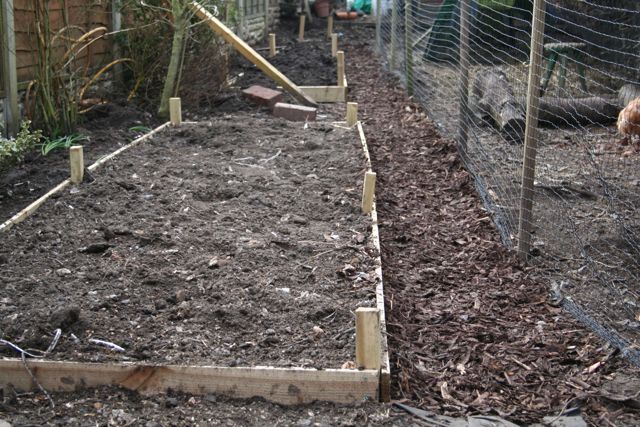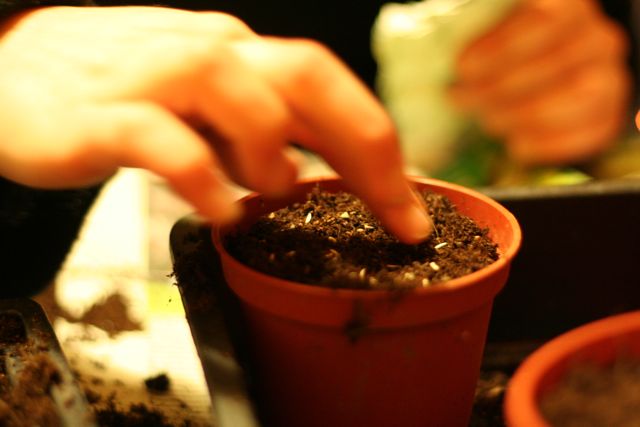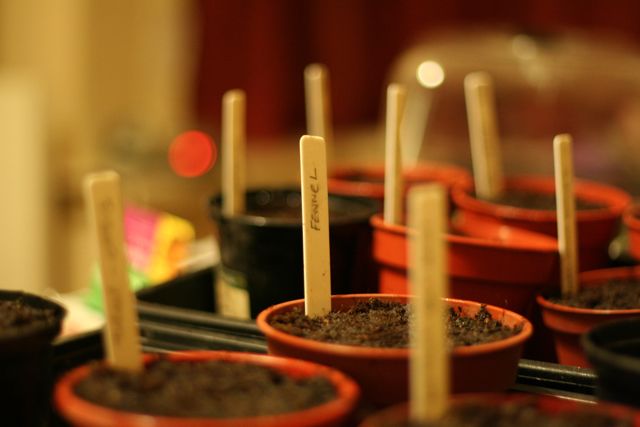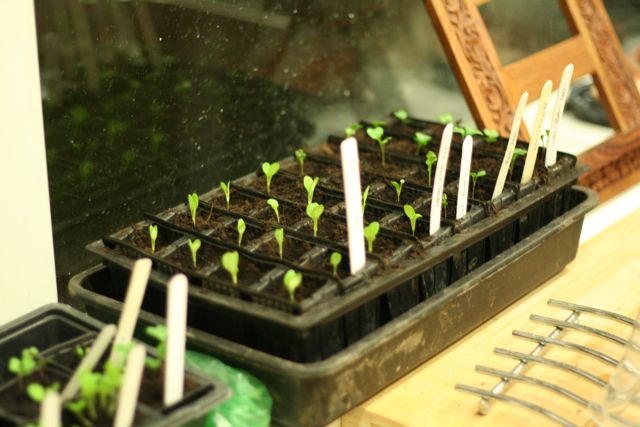Veg: Part 3 – vegetable growing diary
Read previous veg blog
Tom and I spent the Easter weekend down south at my parents. They are enviously ahead of us with the growing season with their dusting of snow now long gone. Whilst ours is still lingering, we started preparing the garden anticipating warmer days.
Last weeks ideas have come to fruition and we have moved the chooks to new ground, pruned our side of the hedge (it’s not ours to remove), created a second compost heap, and used the hedge clippings and dry beech leaves to start a ‘dead hedge’ for insects, and an extra leaf mould compost bin. Very rewarding. Thanks to the chickens the fertile patch we moved them from has become an extra veggie patch – lucky veggies.
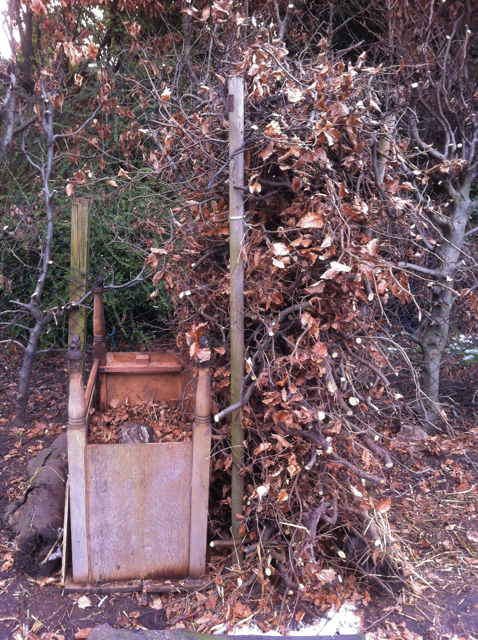
Our garden feels like it’s getting closer to becoming more of closed little ecosystem, with the intention of bringing as little in from outside our garden as possible. Making our own compost, collecting water, relying on chicken manure and building welcoming habitats for helpful insects and wildlife is a good start. We’re yet to test our soil for pH so that we can understand how to give our plants the best start, but it’s up there on the to do list.
Week four at Urban Veg and we’re one step closer to growing outdoors, understanding techniques for sowing seeds in the gorgeous warmth of the poly-tunnel. Being honest I often fall at this first hurdle so i’ve picked up some new tips. Fingers crossed.

Here’s some reasons why my seedlings may not have made it in the past:
- Over-watering once germinated – poor things may have drowned, lacked enough oxygen or developed ‘damp off’ from bacteria growth.
- Surface watering – the roots don’t grow deep enough and became susceptible to temperature change.
- Damaging on transplanting – handling the fragile parts of the seeding (stem and secondary true leaves) instead of the first leaves that grow (cotyledons). Not supporting the roots on transplanting.
- Not enough light – causing seedlings to become ‘leggy’ (searching for more light). I’m re-potting them up to their necks in compost to encourage the stem to become a root.
- Too much light – scorched! I’m currently searching for the right windowsill for the job.
- There’s plenty more reasons… and the experts like Alys could tell you more.
I’m also starting to mix my compost with garden soil as i’ve discovered seeds don’t need such rich food to start, saved for later when transplanting hungry seedlings. It always baffled me why you could buy various different types of compost. Now I know why.
And as disgusting as it is (I hate this bit), i’ve come to terms with the fact that culling slugs has to be done or my veggies will have no chance. After last year, I have less sympathy for them so boiling water and burying it is.

Maintaining consistent warmth for our seedlings is still an issue for us as we’re growing on windowsills with sporadic central heating, dependent on when we’re at home. Must be confusing for a seedling. Oh to have a poly-tunnel or greenhouse. We can only dream of a bigger garden (and more time). Given the cold weather, i’m giving the first seedlings a helping hand by warming the veg patch a few weeks ahead of planting outdoors. It’s a hotch-potch of old plastic bags, but should keep some of the anticipated Midlands rain from adding to the snow melt too.
And we’ve even seen a glimpse of some sun. Maybe there will be a rainbow next week.
Read previous veg blog

